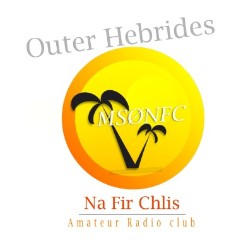What is ham radio ?
Also known as amateur radio it is a technical hobby & public service that is as old as radio itself where people pass an exam and are then free to experiment, build and communicate using radio equipment on allocated frequencies .. it is not CB radio .. the term amateur simply implies that it may not be used for commercial purposes.
If you successfully pass the amateur radio exam a call sign will be issued to you by Ofcom who are the UK communications regulator .. you will now be authorised to use the allocated amateur radio HF, VHF and UHF frequencies to communicate using FM, AM, SSB, Data, Morse Code and even transmit your own TV pictures .. since 2003 a morse code test is no longer a requirement to gaining an HF licence, but its use remains very popular.
Radio hams come from all walks of life from Royalty to the ordinary person on the street.What can I do with ham radio ?
You can talk to similarly licensed people across town or in remote and interesting locations worldwide, even astronauts on the International Space Station, yes you really can as most astronauts/cosmonauts hold a licence and can be heard on VHF from time to time, if you're lucky they might even respond your call.
Ham Radio has a more serious side and is often the only means of providing vital communication during national emergencies or disasters such as hurricane/typhoon, earthquake or tsunami situations where there is immediate danger to life ... mobile phones are usually the first to go in such situations but as ham radio does not depend on terrestrial facilities radio hams are called upon to provide vital communications on behalf of the emergency services during times of crisis.
How do I get a licence ?
The UK uses a form of "incentive" licensing, though you are under no
obligation to upgrade .. you start off by taking the Foundation licence exam, if
successful you may then move on and take the Intermediate exam, finally taking the exam for the Full licence.
There will be changes from Jan 2023 as they are introducing the option of a single exam to achieve a Full licence "Direct-to-Full" just like the old City & Guilds Radio Amateur Exam (RAE) that ceased in 2003.
Call signs begin with 2, G or M prefix.
The G series of call signs ran out in 1996, but they have started to re-issue any unused call signs - including G prefix call signs.
On air you will hear 2, M or newly issued G prefix call signs, followed by a Regional Secondary Locator (RSL).
Club stations may use an alternative prefix as shown below.
Standard RSL prefix Country Club prefix
2D GD MD Isle of Man GT MT
2E G M England GX MX
2I GI MI Northern Ireland GN MN
2J GJ MJ Jersey GH MH
2M GM MM Scotland GS MS
2U GU MU Guernsey GP MP
2W GW MW Wales GC MC
Special event prefix
GB
(regardless of UK location )
GB9 = Special event call sign prefix that could be anywhere in the UK ??
The call sign prefix and number usually indicates the class of licence and country of operation.
example: MM7 = Foundation, Scotland, 2EØ = Intermediate, England, MWØ = Full, Wales, GH4 = Club station, Jersey
Ø = number 0 (zero)
When you move from one country to another within the UK you only need to change your call sign prefix
So for example if MW7QRA visited Scotland their call sign would become MM7QRA
There are changes coming in 2024 .. they are introducing an "E" RSL for England, but making the use of all RSL's optional.
Hopefully people will use some common sense here and add the RSL as before, but some probably won't.
see news link on our homepage for all upcoming changes in 2024
License class privileges
Foundation licence ... access to most UK amateur radio frequency allocations with 25 watts output power. call sign example MM7QRA.
Intermediate licence ... upgrade to gain more UHF frequencies and up to 100 watts output power. call sign example 2MØQRA
Full licence ... gives you full privileges and up to 1000 watts output power. call sign example MMØQRA.
Contest ... issued to Full licence holders only Call sign example MM8Q
All call signs shown are examples only to show format.
Foundation call signs have a MM3, MM6 or MM7 prefix
Intermediate call signs have a 2M1, 2MØ, MM8 or MM9 prefix
Full call signs have a GM1, GM2, GM3, GM4, GM5, GM6, GM7, GM8, GMØ, MM1, MM5 or MMØ prefix
You will also hear single letter suffix contest call signs like GM1A, GM9B, MM1C or MM9D
.........................................................................................................................................
For any questions you might have about amateur radio in general, or to enquire about membership please click on the email address below to contact us.
